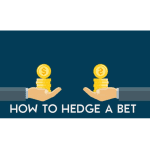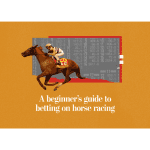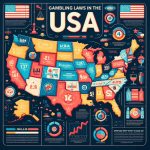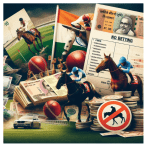Market Rate Explained
Market rates refer to the prevailing prices at which assets or commodities are bought and sold in a particular market. These rates are dynamic and fluctuate depending on various factors such as supply and demand, economic conditions, and investor sentiment. Understanding market rates is crucial for making informed decisions when buying or selling assets.
In the world of finance, market rates play a significant role in determining the value of investments, interest rates on loans, and overall economic health. Investors closely monitor market rates to assess potential risks and rewards associated with their investment choices. Having a firm grasp of market rates could help individuals navigate the complex world of finance more effectively.
Understanding Betting Odds
Betting odds represent the probability of a particular outcome in a sports event or any betting scenario. These odds reflect the likelihood of an outcome happening as perceived by the bookmakers. The odds are typically displayed in three main formats: decimal, fractional, and American odds, each providing a different perspective on the chances of a particular event occurring.
In decimal odds, the odds represent the total payout, including the initial stake, whereas fractional odds display the potential profit in relation to the stake. American odds are displayed with either a plus or minus sign, indicating the underdog and the favorite. Understanding these different formats is crucial for bettors to make informed decisions and assess the risk and potential rewards of their bets effectively.
Factors Affecting Market Rate
Market rates are influenced by a variety of factors, with supply and demand playing a crucial role in determining the price at which a particular asset or commodity is traded. When the demand for a certain product or service increases, its market rate typically rises as well. On the other hand, when supply surpasses demand, the market rate tends to decrease as sellers compete to offload their excess inventory.
External factors such as economic conditions, government policies, and global events can also have a significant impact on market rates. Uncertainty in the economy, changes in regulations, or unexpected developments in other parts of the world can cause market rates to fluctuate unpredictably. Investors and traders closely monitor these external influences to anticipate potential shifts in market rates and make informed decisions regarding their investments.
How Bookmakers Set Market Rates
Bookmakers set market rates by carefully analyzing various factors to ensure that they offer odds that will attract bets from both sides. Firstly, they consider the probability of each outcome happening based on statistics, historical data, and expert insights. This helps bookmakers to establish an initial price for the market rate.
Subsequently, bookmakers adjust the market rate according to incoming bets in order to balance their books and mitigate potential losses. If there is an influx of bets on one side, bookmakers will often decrease the odds for that outcome to encourage more bets on the other side. By closely monitoring the betting patterns and adjusting the market rates accordingly, bookmakers aim to ensure their profitability regardless of the final outcome.
Different Types of Market Rates
Market rates in the world of betting can come in various forms, each serving a specific purpose and catering to different preferences. One common type is the Fixed Odds Market Rate, where the odds for a particular outcome are set in advance and remain fixed until the bet is settled. This type of market rate provides a sense of predictability for bettors, allowing them to know exactly how much they stand to win if their bet is successful.
Another popular type is the In-Play Market Rate, which offers dynamic odds that change in real-time as the event unfolds. This type of market rate provides a more interactive and engaging experience for bettors who enjoy making quick decisions based on the current state of play. In-Play market rates often fluctuate rapidly, reflecting the evolving dynamics of the game and offering opportunities for bettors to capitalize on shifting odds.















